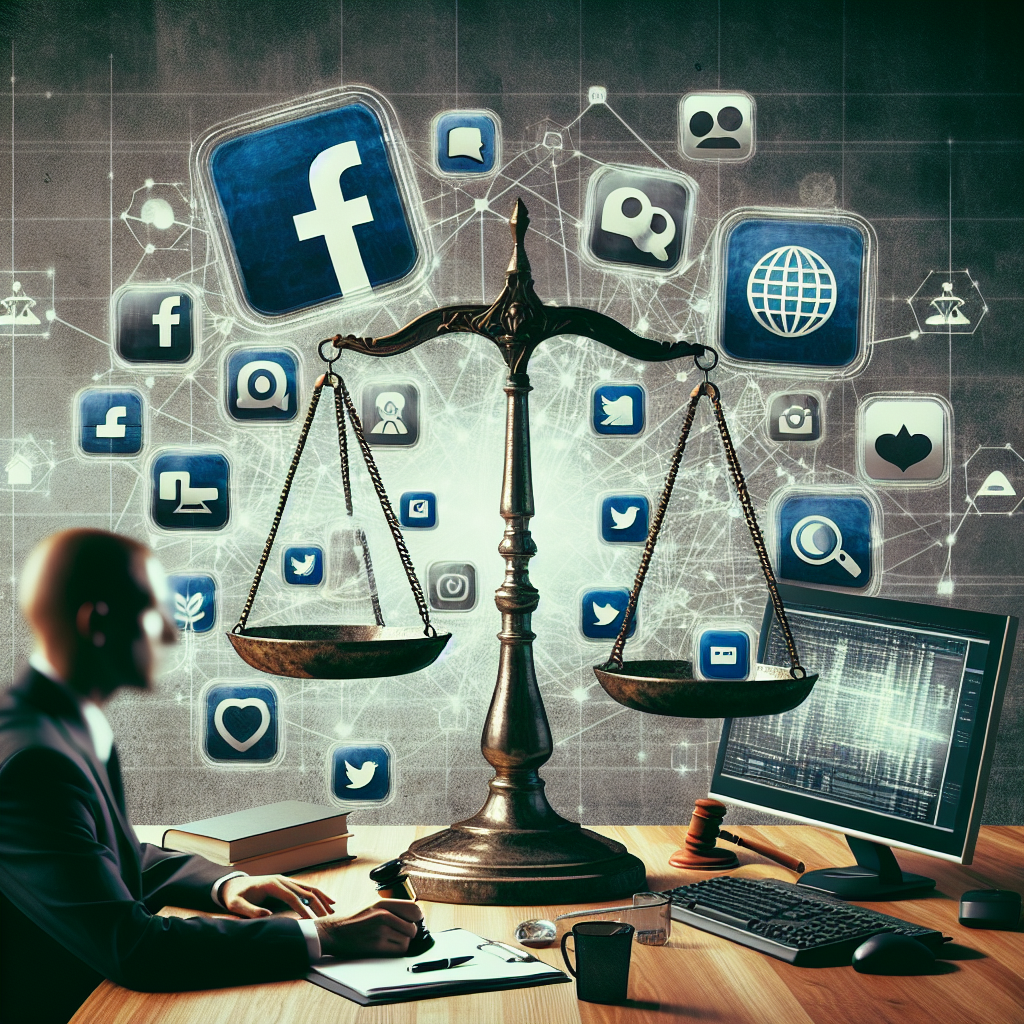In today’s digital age, social media platforms have become integral to communication, marketing, and community engagement. However, with the rapid rise of these platforms comes an increased awareness of the legal risks associated with their use. Users, businesses, and content creators must navigate a complex landscape of laws and regulations that govern online behavior. Understanding these legal implications is essential for anyone looking to use social media effectively while mitigating potential risks.
Defamation and Liability on Social Media
One of the most significant legal risks associated with social media is defamation. Defamation occurs when false statements are made about an individual or organization that can harm their reputation. Given the instant nature of social media, a defamatory statement can quickly spread, leading to severe consequences for the person who posted it. For instance, a single tweet or post can result in lawsuits, requiring individuals to consider the accuracy of their statements carefully.
Moreover, businesses are particularly vulnerable to defamation claims. A negative review or comment can escalate quickly, potentially damaging a company’s reputation and resulting in financial losses. It is crucial for businesses to have clear social media policies that outline acceptable behavior and ensure that employees understand the implications of their online activities. To further explore the consequences of privacy laws, organizations should stay informed on how these laws can intersect with defamation claims.
Privacy Concerns and Data Protection
Another critical area of legal risk on social media is privacy. Users often share personal information without fully understanding the implications. This can lead to violations of privacy laws, especially regarding the collection and use of personal data. Different jurisdictions have varying regulations concerning data protection, and companies must comply with these to avoid hefty fines and legal actions.
Additionally, the sharing of user-generated content poses significant privacy challenges. Businesses that use customer photos or testimonials without permission may face legal repercussions. Understanding the boundaries of privacy and search seizure laws can help organizations navigate these waters more safely.
The rise of social media has transformed the way individuals and organizations communicate. While this platform offers numerous benefits, it also comes with inherent legal risks that users must navigate carefully. Understanding these risks is crucial, particularly for businesses and public figures who may be held to higher standards regarding their online conduct.

Defamation and Libel Risks
One of the most significant legal risks associated with social media use is defamation. This occurs when false statements are made about an individual or organization that damage their reputation. Given the public nature of social media, a single post can reach thousands, if not millions, of people in a matter of minutes. This rapid dissemination can lead to severe consequences for the individual making the statement. In many jurisdictions, the burden of proof lies with the defendant to demonstrate that their statements were true. This can be particularly challenging in cases involving ai in courtrooms, where the nuances of truth and opinion often blur the lines.
Moreover, public figures have an even higher threshold for proving defamation. They must show that the statement was made with actual malice, meaning the person knew it was false or acted with reckless disregard for the truth. This legal standard can deter individuals from speaking out on social media, fearing potential backlash or legal action.
Privacy Violations and Data Protection
Another critical legal concern is the potential for privacy violations. Social media platforms collect vast amounts of personal data, and users often share information without realizing the implications. For instance, posting images or comments about others without their consent can lead to legal disputes over privacy rights. In many cases, individuals may not be aware that sharing such content could infringe on someone else’s privacy, resulting in lawsuits or claims for damages.
Additionally, businesses that utilize social media for marketing must be cautious about data protection laws. Regulations such as the General Data Protection Regulation (GDPR) in Europe impose strict guidelines on how personal data can be collected and used. Failing to comply with these regulations can result in hefty fines and reputational damage. Companies should ensure that they have robust policies in place to protect user data and respect privacy rights, especially when engaging in multidistrict litigation challenges that may involve sensitive information.

As social media continues to evolve, so too do the legal challenges associated with its use. Individuals and organizations alike must navigate a complex landscape of laws and regulations that govern online behavior. Understanding the potential risks can help mitigate legal repercussions and foster a safer online environment.
Implications of Defamation on Social Media
Defamation is one of the most significant legal risks associated with social media use. A single post or comment can lead to serious allegations if it harms an individual’s reputation. The challenge lies in balancing free speech with the potential for damaging statements. Users often underestimate the permanence of their online actions; once something is shared, it can spread rapidly and be difficult to retract. This underscores the importance of being cautious about the content shared on social platforms.
Moreover, the standards for what constitutes defamation can vary by jurisdiction, adding another layer of complexity. For instance, public figures may have a higher threshold to prove defamation than private individuals. This discrepancy can lead to confusion, especially for businesses that engage in social media marketing. Ensuring that statements made about competitors or industry peers are factual and substantiated is crucial to avoid legal challenges.
In addition to personal reputations, organizations can also face defamation claims. Employees and representatives must be aware that their comments on social media can reflect back on their employer. Businesses should implement clear social media policies to guide employees on acceptable online behavior. Training sessions can further help to clarify these policies and the potential legal ramifications of their online interactions.

Privacy Concerns and Legal Compliance
Privacy issues are another critical area of concern when it comes to social media. Users often share personal information without considering the implications. This can lead to violations of privacy laws, especially if sensitive data is disclosed without consent. Organizations must be vigilant about protecting user information and ensuring compliance with regulations such as the General Data Protection Regulation (GDPR) in Europe.
Failure to adhere to privacy laws can result in significant legal penalties and damage to a brand’s reputation. Companies should establish comprehensive privacy policies and ensure that all employees understand their responsibilities regarding data protection. Regular audits can help identify potential vulnerabilities and reinforce compliance efforts.
Furthermore, the rise of data breaches and cyber threats makes it essential for both individuals and organizations to take proactive measures to safeguard their information. Utilizing strong privacy settings and being selective about what is shared online can help mitigate risks. Engaging in conversations about class action lawsuits can also provide insight into how to navigate potential legal pitfalls associated with social media use.